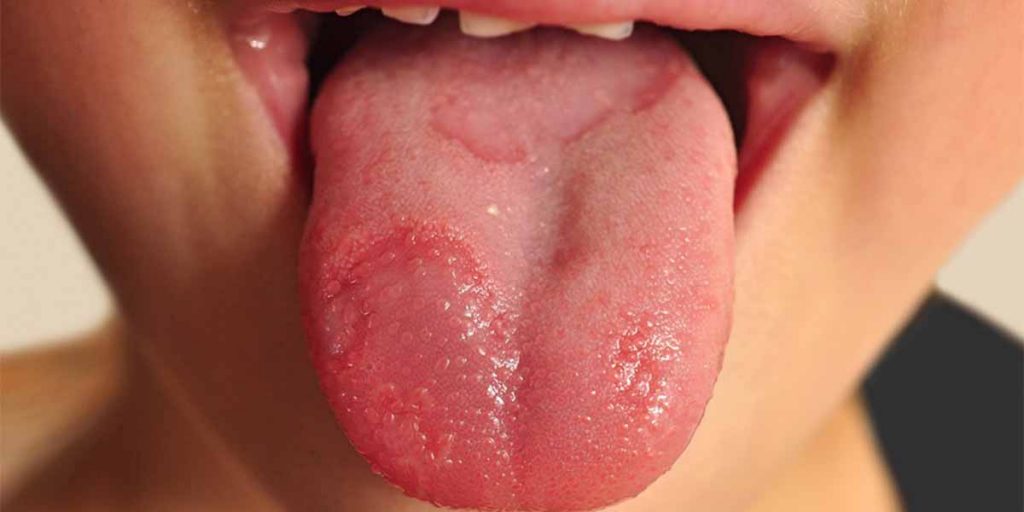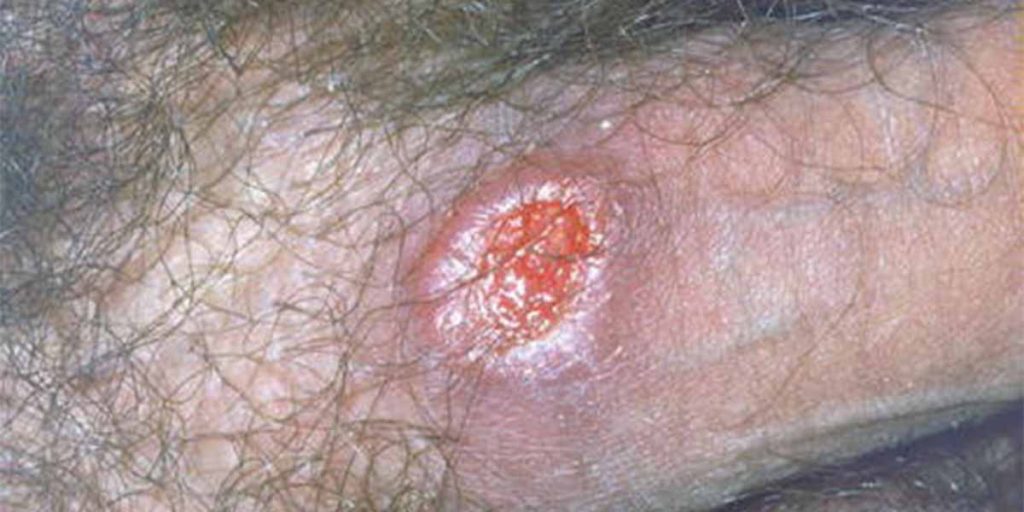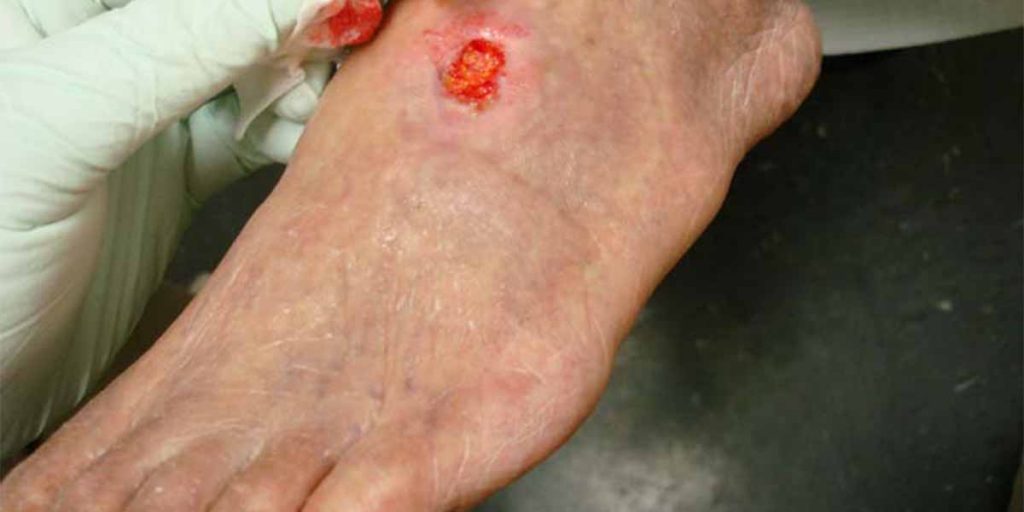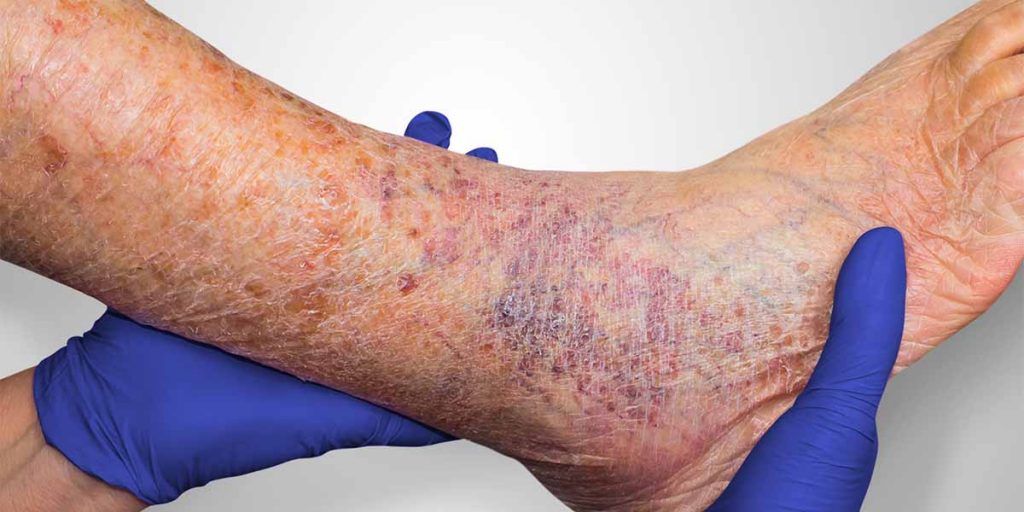Ulcers are painful sores that develop in or outside the body, depending on the cause. Most people rush into taking painkillers whenever they have pains without identifying the cause of their pains. Some ulcers may disappear on their own without treatment, while others need medical treatment. Here are the types of ulcers, causes, symptoms, and treatment you need to know.

READ ALSO: 11 Types of headaches: causes, symptoms, treatment, prevention
Most people think that ulcers result only from stress and anxiety, but that is not the case. According to Dr. Barry Marshall and Robin Warren, ulcers, especially peptic ones, result from bacterial infection.
5 types of ulcers, causes, symptoms, and treatment
Are you struggling with ulcers? We now have the types of ulcers, causes, symptoms, and treatment for you.
1. Peptic ulcers
These are wounds developing inside the stomach lining, the upper portion of the small intestine, and the esophagus. The sores usually form after the digestive juices damage the stomach or the intestinal walls. Peptic ulcers result from the Helicobacter pylori (H. pylori) bacteria that cause stomach infection and inflammation.

Other possible causes of peptic ulcers include;
- Smoking
- Stomach cancer
- Radiation therapy
- Excessive drinking of alcohol
- Prolonged use of painkillers and drugs such as aspirin, ibuprofen, and anti-inflammatory drugs, especially in people over 60 years
There are three types of peptic ulcers;
- Duodenal ulcers, which develop in the duodenum (small intestine)
- Gastric ulcers, which develop in the stomach lining
- Esophageal ulcers, which develop in the esophagus
The three types of peptic ulcers have similar symptoms, and the most common one is a burning abdominal pain, which extends from the navel to the chest. Other symptoms include;
- Nausea
- Bloating
- Belching
- Vomiting
- Heartburn
- Chest pain
- Unexplained weight loss
Peptic ulcer treatment may vary from one person to another, depending on the cause of the ulcer. For instance, a doctor may prescribe antibiotics if you have the H. pylori infection. Those who have been using painkillers and medications for a long time may take medications to reduce their stomach acidity as well.
2. Mouth ulcers
Many people are dealing with this common condition. Also known as canker sores, these lesions develop in the mouth and at the base of the gums. Sometimes mouth ulcers may develop into large wounds that are scary. If your mouth ulcers are excruciating and do not disappear after two weeks, seek medical attention immediately.

Mouth ulcers are commonly triggered by;
- Diseases
- Food allergies
- Bacterial infection
- Hormonal changes
- Hard teeth brushing
- Deficiency of vitamins
- Biting inside of the cheek
The symptoms for this type of ulcers include;
- Fever
- Diarrhea
- Unusual slow healing
- Ulcers that extend to the lips
- Swollen skin around the sores
- Irritation of the sores by salty or sour foods
This type of ulcer may disappear after two weeks without any treatment. Your doctor may prescribe antimicrobial mouthwashes or painkillers in cases where the sores are very painful.
3. Genital ulcers
This is among the types of ulcers affecting some people in the world today. These lesions develop around the genital area, such as the vagina, anus, and the penis. They are mostly triggered by sexually transmitted infections (STIs). Other causes include;

- Trauma
- Inflammatory diseases
- Allergic reactions to skincare products
Symptoms for genital ulcers are;
- Fever
- Itching
- Sores in the affected area
- Bumps in the affected area
- Swollen glands in the groin area
Treatment of this ulcer depends on the cause. A doctor may prescribe antibiotics or antiviral medication to those with STIs. If you realize you have STI, then seek immediate medical attention before it develops to chronic stages.
4. Arterial ulcers
These open sores develop on the outer side of the toes, feet, ankle, and heels. Arterial ulcers develop due to the lack of blood flow to the tissues, which damages the arteries. They may take months before healing, and it is advisable to seek proper medication to avoid complications.

Arterial ulcers symptoms include;
- Leg pain
- Hairless skin
- Black, red or yellow sores
- Pain in the ankle, foot, toe, or heel
- The affected area is cool to touch
Treatment of these ulcers depends on the cause. The sores need to be bandaged to avoid other infections. Your doctor may prescribe antibiotics to help reduce symptoms but may not be enough to heal these ulcers. For this reason, a doctor may recommend surgery to increase blood flow to the tissues and organs. In severe cases, your doctor may recommend amputation.
5. Venous ulcers
These open wounds form on the leg below the knee and the inner area of the ankle. Venous ulcers develop due to the lack of enough flow of blood to the heart, damaging the veins. The wounds may cause little, or no pain even thou a few people experience severe pain.

Venous ulcers symptoms include;
- Itching
- Swelling
- Scabbing
- Discharge
- Inflammation
This type of ulcer takes up to months before healing. Doctors focus on improving the flow of blood to the affected area. Your doctor may prescribe antibiotics to help prevent infection and as well as reduce symptoms. To increase blood flow, your doctor may recommend surgery or compression therapy.
READ ALSO: Top 10 causes of lower back pain you should know
What foods give you ulcers?
Those suffering from ulcers should avoid foods that increase acids in their bodies. Some foods that may worsen ulcers include chocolate, alcohol, caffeine, coffee, spicy foods, and acidic foods such as tomatoes.
Do ulcers go away?
Ulcers can only disappear if the root cause is dealt with. For instance, taking antibiotics will help get rid of the H. pylori bacteria, which is among the causes of ulcers.
READ ALSO: Symptoms and causes of nightmares
Some types of ulcers heal on their own without any treatment, while others need medical attention before they disappear. Therefore, it is advisable to seek the doctor’s advice before your ulcers develop into a chronic stage.
READ ALSO:





